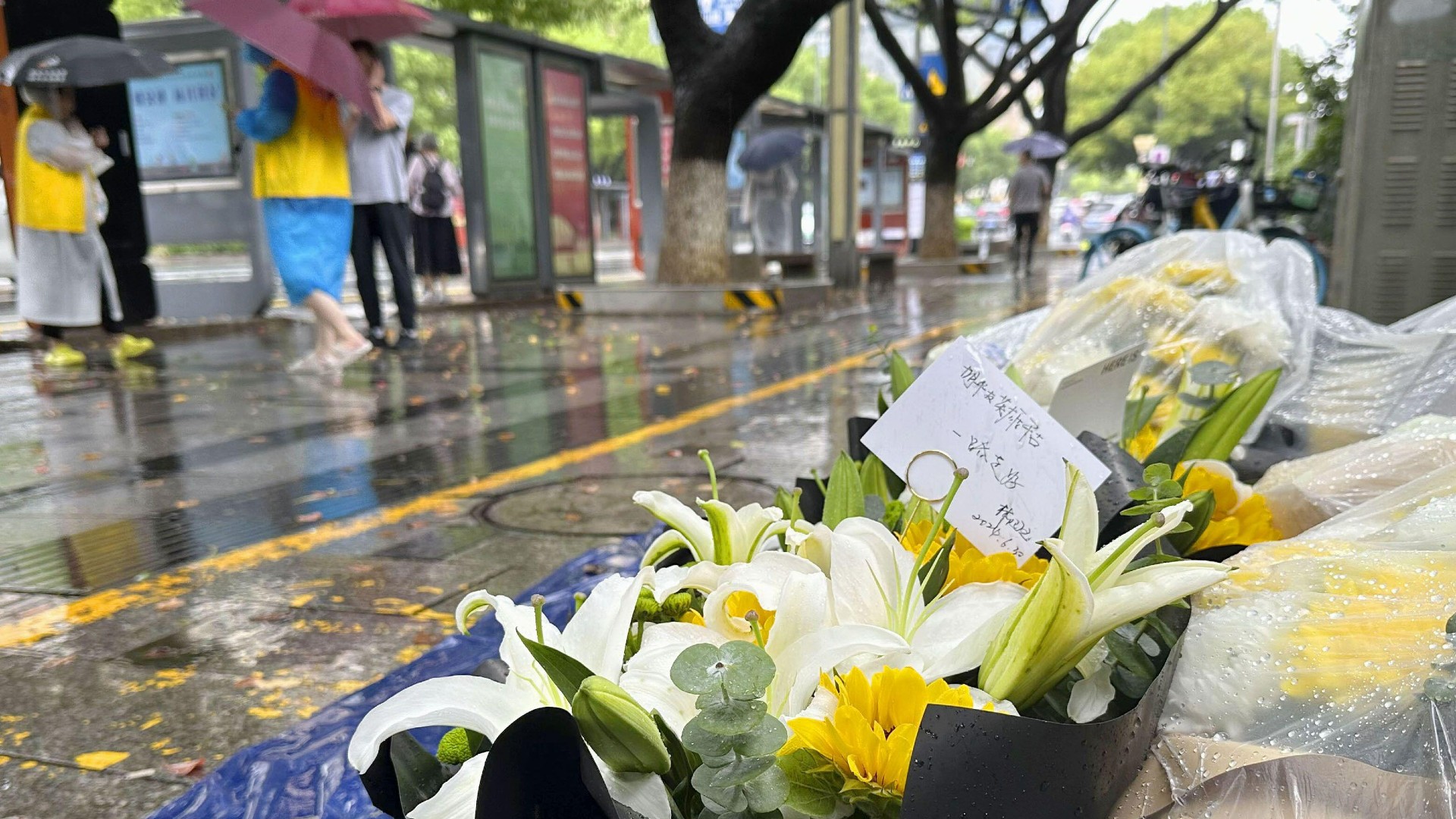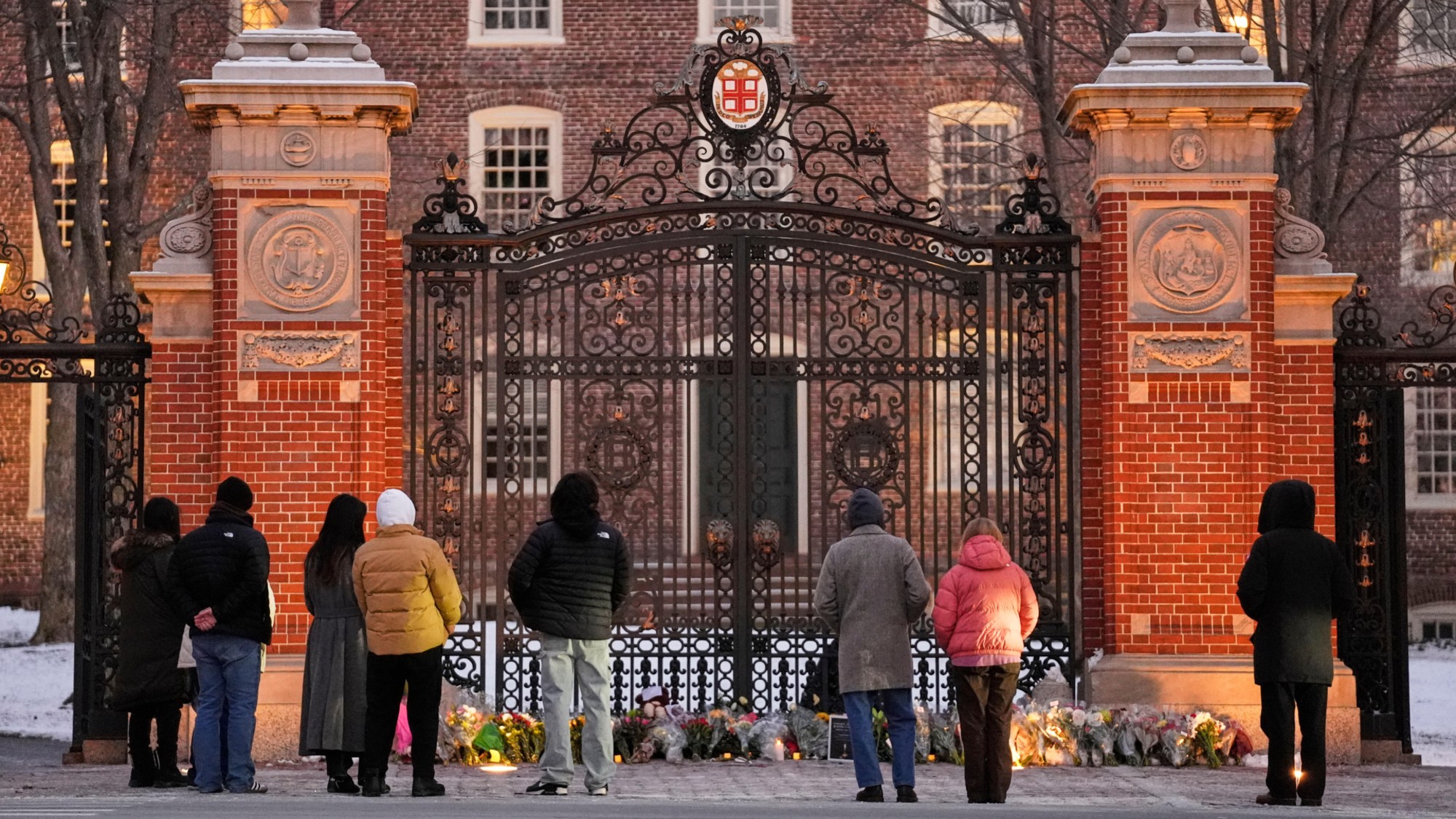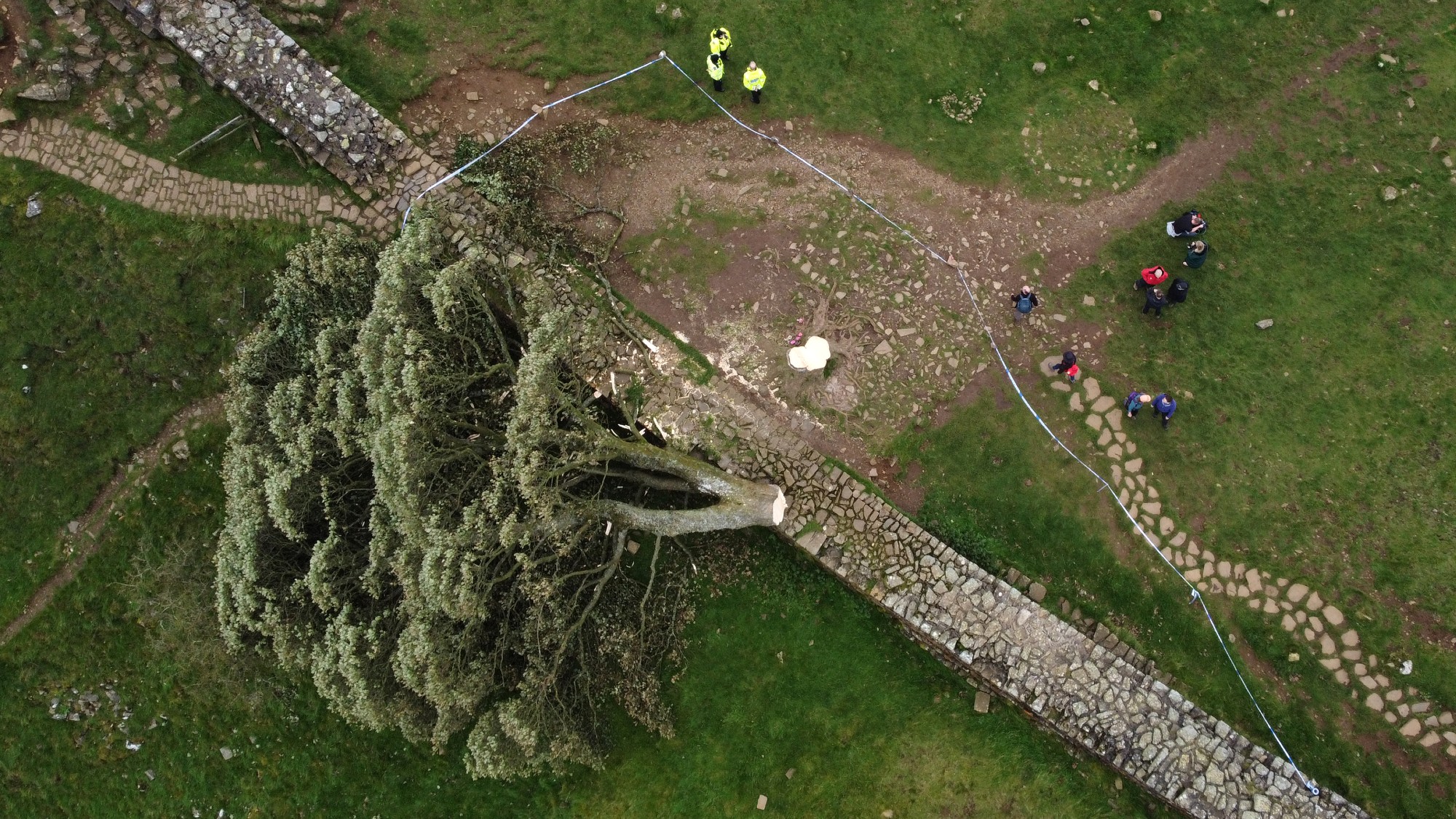A bus stop tragedy and China's anti-Japanese rhetoric
Suzhou attack described as the product of 'decades of hate education'

A free daily email with the biggest news stories of the day – and the best features from TheWeek.com
You are now subscribed
Your newsletter sign-up was successful
We've heard a lot recently about the rise in right-wing nationalism in Europe, said Ziang Liu in the South China Morning Post (Hong Kong). But "ultranationalism is boiling over" in China, too, where anti-Japanese rhetoric is hitting new highs on social media.
In January, an advert celebrating the Lunar New Year was taken down in the city of Nanning after enraged internet users claimed it resembled the Japanese "rising Sun flag". Acts as innocuous as wearing a kimono are often met with fury online.
'Extreme xenophobia' after attack
Anti-Japanese hatred came to a head last month in the city of Suzhou, said Matthew Loh in Business Insider (New York), when a knife-wielding assailant attacked a Japanese woman and her son at a school bus stop. Both were injured; but it was a third victim who seized the country's attention. School bus attendant Hu Youping, a 55-year-old Chinese woman, suffered fatal stab wounds after rushing to protect the two foreigners.
The Week
Escape your echo chamber. Get the facts behind the news, plus analysis from multiple perspectives.

Sign up for The Week's Free Newsletters
From our morning news briefing to a weekly Good News Newsletter, get the best of The Week delivered directly to your inbox.
From our morning news briefing to a weekly Good News Newsletter, get the best of The Week delivered directly to your inbox.
Her death triggered a huge outpouring of anti-Japanese abuse online, leading state-controlled social media sites to condemn the "extreme xenophobia" on display. This marked the point, it seems, that Beijing decided "the extremism had gone too far".
Let's not read too much into this, said Hu Xijin in The Global Times (Beijing). It was an isolated incident: we still don't know the attacker's motives. Even if he was expressing his hatred of the Japanese, that sentiment is not reflected in posts on social media.
That's simply untrue, said Alex Colville on China Media Project (Tapei). Any regular user of Chinese social media knows it's awash with anti-Japanese sentiment. And it's Beijing that has fanned the flames – witness the way it denounced Tokyo for releasing nuclear wastewater from the Fukushima power plant – a course of action UN experts had endorsed; witness how the Communist Party-controlled Global Times recently whipped up nationalist fury over an economic "crime" Japan committed more than a century ago.
It's a bit rich for Hu Xijin, the former editor of The Global Times, to be denying the tide of nationalism he and the state-controlled media have done so much to fuel. "The real lesson here is one of moral confusion – that nationalism is to be encouraged until it embarrasses the leadership."
A free daily email with the biggest news stories of the day – and the best features from TheWeek.com
The 'Wang Hong'
Antipathy towards Japan certainly runs deep, said The Economist. It begins in the classroom where children are "taught to resent [Japan] for its invasion of China and the atrocities it committed during the 1930s and 1940s". The Suzhou attack has rightly been described as the product of "decades of hate education".
And this is far from the first time anti-Japanese sentiment has inflamed the nation, said James Palmer in Foreign Policy (Washington). In 2012, mass protests erupted over Japan's purchase of the Senkaku Islands in the East China Sea, islands that China claims as its own. Japanese premises were vandalised; the flag was ripped from the car of the Japanese ambassador in Beijing. And, at first, the protesters were "effectively given free rein" by the authorities: some cities even put on buses for them. But then, rather like today, the situation started to get out of hand, and the authorities decided to step in and calm things down.
Back then, Beijing didn't find it hard to control the situation, said Katsuji Nakazawa in Nikkei Asia (Tokyo). It's a different story today. The authorities now have to deal with the "Wang Hong", social media celebrities who attract vast numbers of followers. These, Beijing cannot easily tame.
Yes, it spends some $6.6bn a year censoring online content; and yes, last month it did manage to ban the Wang Hong influencer Quan Xing, known as China's Kim Kardashian, for corrupting teenagers with materialistic values and luxury lifestyles. (In his latest interview before being banned, he had boasted he owned seven homes worth $110m.) But the Wang Hong gain followers precisely by espousing inflammatory causes, and Beijing is well aware that any strenuous attempt to rein them in could backfire, leading the influencers to vent their fury on hot political issues such as high unemployment. Beijing is finding out the hard way that the new breed of nationalist is harder to control.
-
 Local elections 2026: where are they and who is expected to win?
Local elections 2026: where are they and who is expected to win?The Explainer Labour is braced for heavy losses and U-turn on postponing some council elections hasn’t helped the party’s prospects
-
 6 of the world’s most accessible destinations
6 of the world’s most accessible destinationsThe Week Recommends Experience all of Berlin, Singapore and Sydney
-
 How the FCC’s ‘equal time’ rule works
How the FCC’s ‘equal time’ rule worksIn the Spotlight The law is at the heart of the Colbert-CBS conflict
-
 The Epstein files: glimpses of a deeply disturbing world
The Epstein files: glimpses of a deeply disturbing worldIn the Spotlight Trove of released documents paint a picture of depravity and privilege in which men hold the cards, and women are powerless or peripheral
-
 Death in Minneapolis: a shooting dividing the US
Death in Minneapolis: a shooting dividing the USIn the Spotlight Federal response to Renee Good’s shooting suggest priority is ‘vilifying Trump’s perceived enemies rather than informing the public’
-
 Campus security is under scrutiny again after the Brown shooting
Campus security is under scrutiny again after the Brown shootingTalking Points Questions surround a federal law called the Clery Act
-
 How the Bondi massacre unfolded
How the Bondi massacre unfoldedIn Depth Deadly terrorist attack during Hanukkah celebration in Sydney prompts review of Australia’s gun control laws and reckoning over global rise in antisemitism
-
 Tommy Robinson: a timeline of legal troubles
Tommy Robinson: a timeline of legal troublesThe Explainer Far-right leader has relied on donations from supporters to fight numerous court cases dating back 20 years
-
 Diddy: An abuser who escaped justice?
Diddy: An abuser who escaped justice?Feature The jury cleared Sean Combs of major charges but found him guilty of lesser offenses
-
 Crime: Why murder rates are plummeting
Crime: Why murder rates are plummetingFeature Despite public fears, murder rates have dropped nationwide for the third year in a row
-
 The Sycamore Gap: justice but no answers
The Sycamore Gap: justice but no answersIn The Spotlight 'Damning' evidence convicted Daniel Graham and Adam Carruthers, but why they felled the historic tree remains a mystery